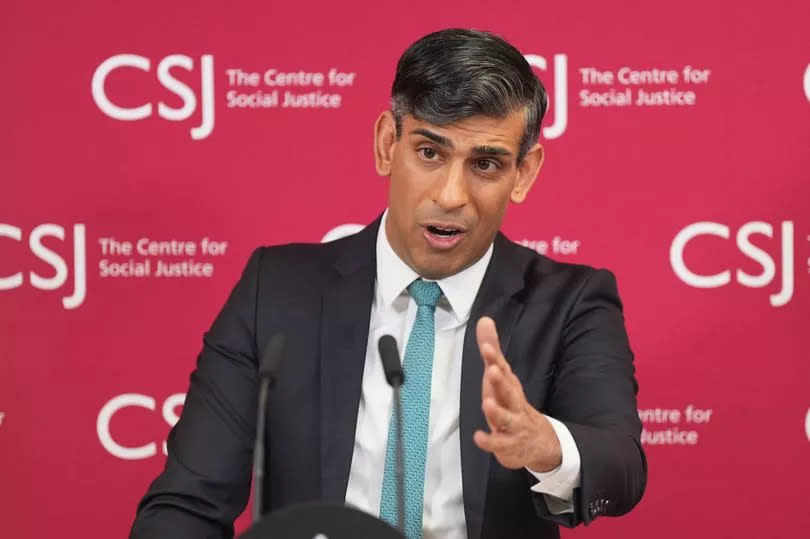DWP PIP reforms could see major changes to eligibility and evidence requirements

People who receive Personal Independence Payments (PIP) from the Department for Work and Pensions (DWP) could face tougher eligibility criteria under proposed reforms announced by Prime Minister Rishi Sunak in a speech on Friday (April 19).
Speaking at the Centre for Social Justice, the Prime Minster highlighted the massive increase in long-term sickness that followed the pandemic, with 2.8 million Brits now declared not fit to work. Pointing to high rates of depression and anxiety among PIP claims, he said there is a "risk of over-medicalising the everyday challenges and worries of life."
The Prime Minister said that he was not looking to "dismiss or downplay" mental illnesses, but that he could not "sit back" amid the growing trend of worklessness "for fear of causing offence." According to government data, the number of PIP claims citing depression or anxiety as the main condition has doubled - with 5000 more people signed off with mental illness every month.
READ MORE: DWP crackdown could see millions of people lose benefit payments
The Prime Minister said: "Since the pandemic, 850,000 more people have joined this group due to long-term sickness. This has wiped out a decade’s worth of progress in which the rate had fallen every single year. Of those who are economically inactive, fully half say they have depression or anxiety. And most worrying of all the biggest proportional increase in economic inactivity due to long-term sickness came from young people."
Mr Sunak announced that a consultation would be launched in the coming days, to work out how the PIP system could move towards "a more objective and rigorous approach that focuses support on those with the greatest needs and extra costs".
He said the reforms will see "more precise" criteria on the "the type and severity of mental health conditions that should be eligible for PIP".
As part of the reforms, PIP claimants could also be required to show "greater medical evidence to substantiate a claim," with those suffering from mental health conditions possibly given "talking therapies or respite care" instead of their DWP payment.
The Prime Minister said: "We need to match the support people need to the actual conditions they have and help people live independently and remove the barriers they face. But we need to look again at how we do this through Personal Independence Payments, I worry about it being misused. Now its purpose is to contribute to the extra costs people face as they go about their daily lives."
Mr Sunak went further in making a point of separating physical and mental illness, saying of those with mental health conditions "it is not clear they have the same degree of increased living costs as those with physical conditions". He added: "The whole system is undermined by the way people are asked to make subjective and unverifiable claims about their capability."
People with physical conditions might also see a change in how they are given their benefits, with the Prime Minister saying that they might not need extra cash once they have been given their medical equipment.
He said: "Take for example, those who need money for aids or assistance with things like handrails or stairlifts. Often they’re already available at low cost, or free from the NHS or Local Authorities. And they’re one-off costs so it probably isn’t right that we’re paying an ongoing amount every year. "
The Prime Minister said the reforms were necessary to ensure fairness in the benefits system, saying: "Fail to address this, and we risk not only letting those people down, but creating a deep sense of unfairness amongst those whose taxes fund our social safety net in a way that risks undermining trust and consent in that very system."
Specific dates and amounts of money are yet to be published by the government, but Work and Pensions Secretary Mel Stride said on BBC Breakfast on Friday morning that they would be coming "later this year."

 Yahoo News
Yahoo News 
